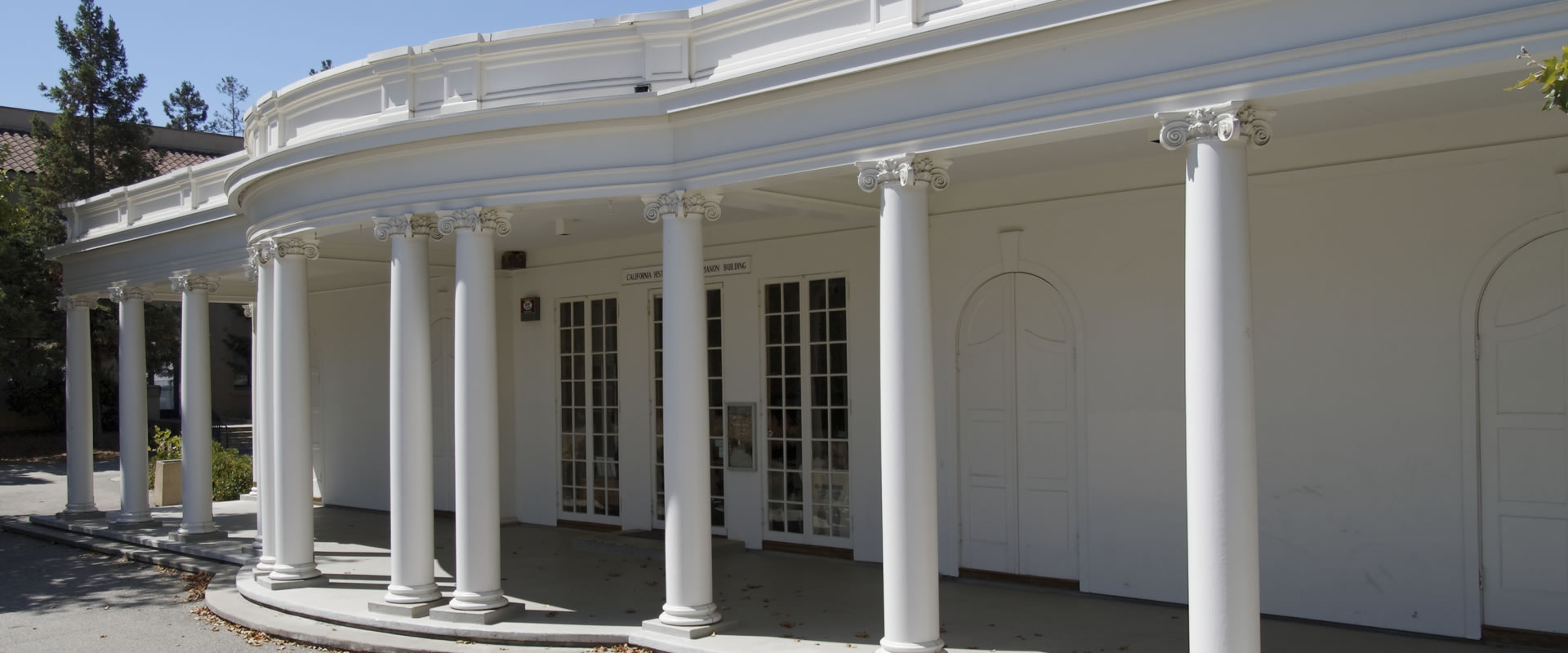The California History Center academic program serves as the vital link in the partnership between the Foothill-De Anza Community College District and the California History Center Foundation. On average, 20 academic courses are offered each year through the CHC program. Courses are offered during the day, evening, and on weekends, and most courses are transferable to four-year institutions as electives.
California History Center
The following courses will be offered Fall quarter 2015 through the California History Center. Please see the History Department class listings section of the Schedule of Classes.
- New Almaden Quicksilver Mine - 19th and 20th Centuries
- John Steinbeck's California: His Role and Influence
- Creating and Fostering Inclusivity in California
- Water: California's New Gold
To sign up for a class, apply for admission and register online. For more information or questions, call the center at 408.864.8712
New Almaden Quicksilver Mine - 19th and 20th Centuries
Course:HIST-055C-95, 2 units
CRN: 22970
Instructor: Mary Jo Ignoffo
The New Almaden mine is the site of the first mercury deposit discovered on the American continent and has yielded metal of greater value than that of any other mine in the State, producing nearly one-third of the country's supply of mercury. Production at the mine fluctuated until 1927 when mining activity was terminated for the first time since 1849. Mining was resumed during World War II. The site became a National Historic Landmark in 1964 and part of Santa Clara County's park district in 1975. Quicksilver, as mined at New Almaden, was the chief reduction agent used in processing gold and silver, making it vital during California's Gold Rush. This class will explore the mine's activity, and the ethnicity of the miners who carried out the work during the 19th and 20th centuries. We will also evaluate environmental issues surrounding the mercury mine, and how those issues continue to be addressed. We will visit New Almaden's wooden and adobe offices, mine structures and old furnace buildings, many dating from the 1850s, and walk the trails leading to many of the mine shafts.
Lectures in Room: CHC, 4:00 pm - 7:50 pm:
Monday, October 5, 2015; Monday, October 19, 2015
Field Studies: Saturday, October 10, 2015; Friday, October 16, 2015
Contact: ignoffomaryjo@deanza.edu
John Steinbeck's California: His Role and Influence
Course: HIST-055A-96, 2 units
CRN: 23037
Instructor: Chatham Forbes, Sr.
John Steinbeck's The Grapes of Wrath was inspired by the extreme social and economic disparities in the farm communities of California, especially for Dust Bowl and ethnic migrant workers. The young Steinbeck's sympathies were profoundly moved when he observed them close at hand both in the Salinas Valley, where he grew up, and in the San Joaquin Valley. He won both Pulitzer and Nobel Prizes for his powerful calls to remedy injustices among the under-represented poor.
Lectures in Room: CHC, 6:30 pm - 10:20 pm:
Thursday, October 1, 2015; Thursday, October 15, 2015
Field Studies: 9:00 am - 5:30 pm: Saturday, October 3, 2015: Salinas;
9:00 am - 5:30 pm: Saturday, October 17, 2015: Monterey
Contact: chforbessr@msn.com
Creating and Fostering Inclusivity in California
Course: HIST-107X-95, 2 units
CRN: 23044
Instructor: Crystal Hupp
This year marks the 25th anniversary of the passing of the Americans with Disabilities Act. In honor of this milestone of this historic legislation, this course will explore the many struggles, triumphs and community building efforts of concerned and dedicated Californians who have fought to make the communities in which we live more inclusive and accessible for all California citizens. These communities that have been created are powerful reminders of how citizens have fought and continue to fight for a truly inclusive world that includes all members of our society.
Lectures in Room: MLC110 (preferred due to handicap accessibility),
6:00 pm - 9:50 pm: Monday, November 2, 2015; Monday, November 16, 2015
Field Studies: 9:00 am - 5:30 pm: Saturday, November 14, 2015;
9:00 am - 5:30 pm: Saturday, November 21, 2015
Contact: crhupp@gmail.com
Water: California's New Gold
Course: HIST-055B-95, 2 units
CRN: 23043
Instructor: Chatham Forbes, Sr.
Water today is as scarce and precious, in its way, as gold and silver were in 19th century California, and far more essential to the 38 million people whose very lives depend on a daily supply. It is equally indispensable to the state's agriculture, largest in the nation, and to many other industries. Water is in constant need also by the flora and fauna of California's many ecologies. This critical shortage will be studied in the classroom and in the field.
Lectures in Room: CHC, 6:30 pm - 10:20 pm:
Thursday, November 5, 2015; Thursday, November 12, 2015
Field Studies: 9:00 am - 5:30 pm: Saturday, November 7, 2015: San Jose sites;
9:00 am - 5:30 pm: Saturday, November 14, 2015: Los Gatos & Campbell
Contact: chforbessr@msn.com

